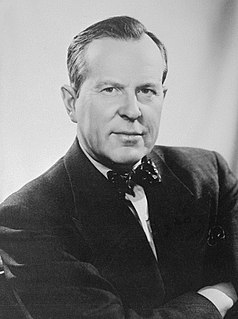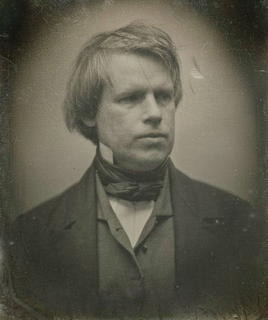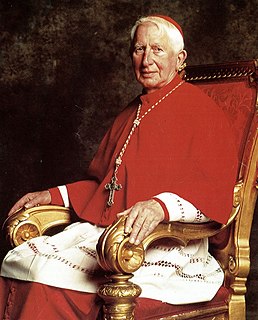A Quote by Michel de Montaigne
There is a huge gulf between the man who follows the conventions and laws of his country and the man who sets out to regiment them and to change them.
Related Quotes
Man is the only Patriot. He sets himself apart in his own country, under his own flag, and sneers at the other nations, and keeps multitudinous uniformed assassins on hand at heavy expense to grab slices of other people's countries, and keep them from grabbing slices of his. And in the intervals between campaigns he washes the blood off his hands and works for the universal brotherhood of man - with his mouth.
I believe there are an infinite number of laws of the universe and that all progress or dreams achieved come from operating in a way that's consistent with them. These laws and the principles of how to operate in harmony with them have always existed. We were given these laws by nature. Man didn't and can't make them up. He can only hope to understand them and use them to get what he wants.
Draw nigh to the righteous, and through them you will draw nigh to God. Communicate with those who possess humility, and you will learn morals from them. A man who follows one who loves God becomes rich in the mysteries of God; but he who follows an unrighteous and proud man gets far away from God, and will be hated by his friends.
Love makes no distinction between man and man, between an Aryan and a Mlechchha, between a Brâhmana and a Pariah, nor even between a man and a woman. Love makes the whole universe as one's own home. True progress is slow but sure. Work among those young men who can devote heart and soul to this one duty - the duty of raising the masses of India. Awake them, unite them, and inspire them with this spirit of renunciation; it depends wholly on the young people of India.
All government, in its essence, is a conspiracy against the superior man: it's one permanent object is to oppress him and cripple him... One of its primary functions is to regiment men by force, to make them as much alike as possible and as dependent upon one another as possible, to search out and combat originality among them.
When people are ready to, they change. They never do it before then, and sometimes they die before they get around to it. You can’t make them change if they don’t want to, just like when they do want to, you can’t stop them. “A man is what he thinks about all day long.” [Ralph Waldo Emerson] Every man who knows how to read has it in his power to magnify himself, to multiply the ways in which he exists, to make his life full, significant and interesting. Aldous Huxley










































